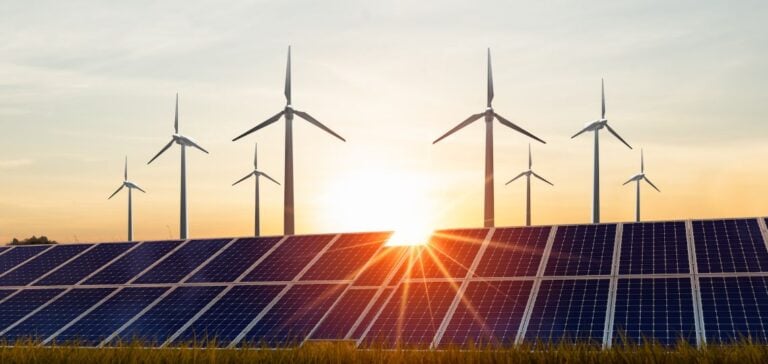At the opening of COP29 in Baku, Azerbaijan, the climate debate takes on new urgency. The International Renewable Energy Agency (IRENA) issued a pressing appeal to governments to accelerate their energy transition. According to IRENA’s 2024 report, reaching carbon neutrality goals by 2050 depends on a rapid expansion of renewable energies and improved energy efficiency.
To keep warming under the 1.5 °C threshold, IRENA proposes tripling the global capacity of renewable energy production and doubling energy efficiency by 2030. These measures are essential to meeting the commitments of the Paris Agreement and ensuring a sustainable and equitable energy transition.
An alarming climate assessment
According to the Copernicus Climate Change Service, 2024 could become the hottest year on record, marking clear progress toward the critical 1.5 °C threshold. In light of these predictions, IRENA warns that only concerted and urgent action by G20 countries will reverse this trend. Nationally Determined Contributions (NDCs), to be revised in 2025, represent a last chance for nations to strengthen their climate ambitions.
Insufficient commitments and regional disparities
Current country commitments to reduce CO2 emissions by 2030 remain insufficient. The report highlights that current contributions would lead to only a 3% reduction in energy-related CO2 emissions by 2030, while a much larger reduction would be needed to reach carbon neutrality.
Moreover, significant regional disparities persist in the installation of new renewable energy infrastructures, creating inequalities in the energy transition. In the absence of targeted financing, some regions may remain dependent on fossil fuels, hindering overall progress toward a more sustainable energy model.
The essential role of investment
To achieve the COP29 objectives, a massive increase in investment in renewable energies is essential. The demand for flexible network infrastructure and energy storage technologies is critical to support increased integration of renewable sources into power grids.
According to IRENA, a renewable energy production capacity of 9.4 terawatts (TW) must be reached within G20 countries by 2030 to maintain the 1.5 °C climate target. This requires unprecedented investments and enhanced cooperation between public and private sectors.
Prospects for a global energy transition
The International Energy Agency (IEA) forecasts that global renewable energy capacity could reach 2.7 times its 2022 level by 2030, allowing renewable electricity generation to surpass coal as early as 2025. By 2030, fossil fuels are expected to represent only 24% of the global energy mix, down from 61% today, according to IRENA’s projections.
This transition, however, depends on the integration of energy storage solutions and demand management, two essential technologies for absorbing the variability of renewable sources and ensuring grid stability.
To meet the challenges posed by this energy transformation, countries must adapt their national energy plans and align their carbon neutrality targets. The third round of NDCs, scheduled for 2025, will be a decisive moment for the implementation of these strategies.






















